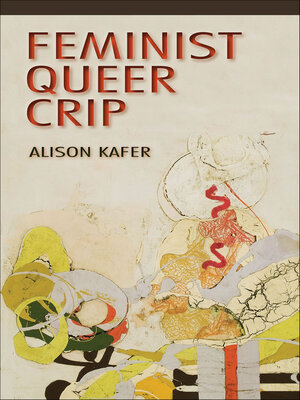
Sign up to save your library
With an OverDrive account, you can save your favorite libraries for at-a-glance information about availability. Find out more about OverDrive accounts.
Find this title in Libby, the library reading app by OverDrive.



Search for a digital library with this title
Title found at these libraries:
| Library Name | Distance |
|---|---|
| Loading... |
A critical analysis of how social and academic discourses treat disability and how they affect disabled lives.
"This book breathes the poetics of disability life, a life that is consistently under threat, in a way that is complex, clear, highly accessible, and grounded in the politics of everyday life. For this reason, it may not be just that this book is highly teachable (which it is); this is a book that must be included in any disability studies, queer theory, and feminist theory curricula." —Canadian Journal of Disability Studies
In Feminist, Queer, Crip Alison Kafer imagines a different future for disability and disabled bodies. Challenging the ways in which ideas about the future and time have been deployed in the service of compulsory able-bodiedness and able-mindedness, Kafer rejects the idea of disability as a pre-determined limit. She juxtaposes theories, movements, and identities such as environmental justice, reproductive justice, cyborg theory, transgender politics, and disability that are typically discussed in isolation and envisions new possibilities for crip futures and feminist/queer/crip alliances. This bold book goes against the grain of normalization and promotes a political framework for a more just world.
"Feminist, Queer, Crip makes significant contributions to our understanding of how disability works in the world, contributions that no other academic book in the recently emergent field of interdisciplinary disability studies has done so thoroughly."―Journal of Literary and Cultural Disability Studies
"Ambitious, doggedly interdisciplinary, and accessibly written. It retains political sharpness while remaining determinedly optimistic about queer/crip futures."―QED
"Kafer interrogates the ableist assumptions that pervade social and academic discourses and offers a critique of how these assumptions are put into practice in ways that directly affect the lives of people with disabilities. This is an original and comprehensive work that brings together disability studies, feminist theory, and queer theory."―Licia Carlson, Providence College







